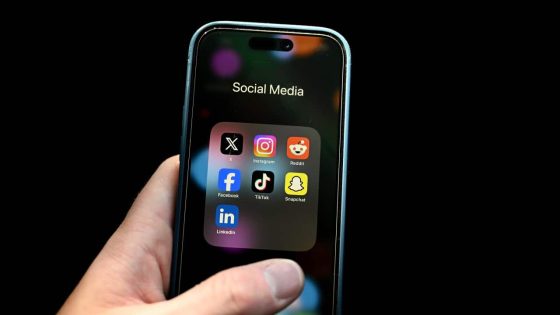Mayor Brandon Johnson was tight-lipped Monday on the fate of the NASCAR Chicago Street Race after a lackluster audience showing and criticism from some over the diversion of hundreds of police officers to Grant Park during the historically violent holiday weekend.
Speaking at a news conference at Chicago police headquarters, the mayor condemned the grim tally of more than 100 people shot in the city over the Fourth of July weekend. But Johnson and Chicago Police Department Superintendent Larry Snelling were noncommittal on moving the downtown NASCAR event to a different weekend, with Johnson instead punting the blame for its timing to his predecessor, Lori Lightfoot.
“Obviously, those were dates that we inherited. We will continue to assess how this particular weekend for NASCAR … best benefits the people of Chicago,” Johnson told reporters. “But no decision has been made on which weekend in particular is best suited because I’ll just say it like this: Whether it’s a holiday weekend or a weekend as someone who’s celebrating their wedding anniversary, the point of our work is to ensure that every single weekend in the city of Chicago is as safe as possible.”
The three-year contract for an annual NASCAR street race in Chicago was secured by Lightfoot, but she lost her reelection bid before the first event took place on July Fourth last year. However, the Johnson administration opted to keep the same schedule this summer, instead of moving the race for its second year.
The mayor’s growing embrace of the race — complete with pulling up to it in a car-racing outfit — signals his recent attempts to balance downtown business interests with his promise to help disenfranchised communities. Backing such a high-profile event that brought Chicago positive publicity last year, when picturesque shots of the skyline drew widespread admiration, could be a useful step in that direction.
He’s in a tricky spot, however. The race idea was widely panned upon its announcement by progressive Lightfoot critics who make up an important part of Johnson’s base. And a report on last year’s NASCAR race showed the economic benefit fell far below expectations.
At the Monday news conference, Snelling also chimed in on NASCAR and argued there were far fewer cops diverted from the neighborhoods to the event in and around Grant Park this July than last time.
“We had significantly less officers at that event this year,” the top cop said. “We recognize that we had a level of security around that event where we didn’t need as many officers. So we were able to scale that down this year, and we’ll continue to do that.”
Asked to provide estimates or totals backing up that claim, Chicago police spokesman Thomas Ahern responded, “We do not divulge the number of officers deployed for any events or operations.” When the Tribune showed him a recap of a discussion between former CPD Superintendent David Brown and Ald. Brendan Reilly in which Brown did provide the number of officers he anticipated deploying for NASCAR in 2023, Ahern responded that he would follow up later.
In that 2022 exchange from a budget hearing for the Police Department, Reilly, 42nd, asked Brown how many cops were diverted to the Lollapalooza music festival that summer, to which Brown responded, “A little over 800,” and then said it was “quite possible” the same amount of cops would be assigned to the NASCAR race.
Ald. Raymond Lopez, 15th, said he felt his Southwest Side ward was shortchanged by the blockbuster event downtown.
“Major events are great but they come and go,” Lopez, a frequent Johnson critic, told the Tribune in a statement. “Chicagoans remain. It would do this administration well to remember that.”
Ald. Lamont Robinson, whose 4th Ward includes parts of Grant Park, noted police resources are already stretched thin over the Fourth of July, so the city should reconsider NASCAR’s timing.
“I do think we should go back to the drawing board about the weekend,” he said. “There’s a strain on CPD for that holiday.”
One unanswered question is if and when NASCAR will reimburse the city $2 million to cover costs for roadwork setup and public safety overtime. That promised payment was secured by the Johnson administration in what appears to have been a handshake deal, as the administration said it has no records of a written agreement.
Last year, the city spent $3.5 million to host the race and got $620,000 in return, the Tribune has reported.
Johnson, asked whether he is confident NASCAR will pay the city what it’s owed, responded: “So that’s my comptroller’s responsibility. I don’t just walk around the city collecting checks from people. Our comptroller does a really good job at that. You know, as far as the overall economic benefit, again, we’ll be assessing, analyze, and we’ll make a decision accordingly.”
Besides the flat $2 million payment to the city, NASCAR is also required to deposit $550,000 to the Chicago Park District — which must be paid 90 days before the event — plus compensate the agency with $2 per ticket sold and 20% of net food, beverage and merchandise sales.
The contract signed by the Lightfoot administration expires in 2025, and the NASCAR race is currently again scheduled for the Fourth of July weekend. The base fee for the Park District will go up to $605,000, while the cut of concessions sales will grow to 25%. However, the Park District can terminate the agreement “for convenience” at least 180 days before the event, as can NASCAR with 90 days’ notice.
NASCAR can also request to extend the contract for two more years, until 2027, within 90 days after the end of next year’s race.
For the 2023 race, NASCAR paid $620,000 to the Chicago Park District, which included a base $500,000 fee to transform the streets around Grant Park into a 2.2-mile racetrack and $120,000 for the district’s cut of ticket, food, beverage and merchandise sales. On top of it, NASCAR said it paid $1.8 million in amusement taxes to the city and county for tickets sold.
Most of the weekend — envisioned by NASCAR more as a festival than just a race, with concerts and showcases included — went off without a hitch. Sunny, warm weather was an auspicious presence leading into Sunday, and the specter of last year’s downpours that delayed the race were scarcely a concern. Then, the rains struck again.
Most seats were empty by the time Alex Bowman’s purple Chevrolet crossed the finish line. Huge crowds shuffled out of Grant Park as intermittent rain sparked a nearly two-hour pause in racing, taking much of the event’s energy with them.
Ultimately, organizers had to shorten the race as daylight waned.
Ald. Pat Dowell, 3rd, said she too decided to leave early. But she praised the event as “much better organized” this year. Road closures were cut, the city got more money for police overtime and minority businesses were well included, she said.
Dowell, whose Near South Side ward includes parts of Grant Park, said she received few complaints from residents decrying the race this year. Last year, a survey she conducted after the first race showed her constituents liked the event, but wanted it to occur on another weekend, a change she’s considering pushing for.
Dowell said she has not yet decided whether she thinks the race should return for a third year. She wants to wait to see economic reports to make a decision, she said. But she saw smiling faces and thought the event promoted “a good feeling about Chicago.”
“It looked like people were having a good time and spending money,” she said. “I just want to see how the city fared.”
Chicago Tribune’s A.D. Quig contributed reporting.
Source Agencies



